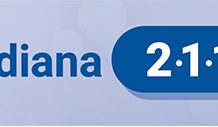Marilyn Odendahl for www.theindianalawyer.com
A wholly owned subsidiary of Zimmer Biomet in Warsaw, Indiana, will be arguing it should not have to pay about $248 million in a patent infringement case scheduled to be heard by the Supreme Court of the United States.
The justices granted the petition for a writ of certiorari Oct. 19 but have not scheduled a date for oral arguments. The case, Stryker Corp. v. Zimmer, Inc., 14-1520, has been consolidated with Halo Electronics, Inc. v. Pulse Electronics, Inc., 14-1513.
At issue will be the circumstances under which a court can increase the damages awarded in a patent infringement lawsuit. A federal jury found Zimmer had willfully infringed and awarded Stryker $70 million in lost profits.
The U.S. District Court for the Western District of Michigan awarded treble damages and allowed for Stryker to collect reasonable attorney fees. But the U.S. Court of Appeals for the Federal Circuit reversed the enhanced damages and award of attorney fees.
Stryker filed a suit against Zimmer in December 2010 for infringing on three patents related to the pulse lavage device. This surgical tool is used to clean out wounds and remove dead tissue from wound sites. Stryker developed a portable, battery-powered, hand-held version which was an improvement over the other models that were bulky, had to be wheeled from one hospital room to another, and required a centralized power source.
According to the District Court, Zimmer’s place in the pulse lavage device market was significantly hurt by Stryker’s new device so it handed an independent contractor a copy of the tool with the instructions to “Make one for us.â€
Subsequently, Zimmer introduced its competing product into the market and was fairly successful in luring customers away from Stryker.
In November 2012, the District Court granted Stryker’s motion for summary judgment of infringement on two of the patents and on all but one claim element in the third patent. Following the jury’s verdict, the District Court ordered treble damages.
It found enhancement of the jury’s award was warranted, in part, because Zimmer did not present any evidence that it investigated the scope of Stryker’s patents; Zimmer needlessly delayed producing the requested information about its application for the patent of its own device; and Zimmer did not take any remedial action to stop its infringement but did attempt to prevent Stryker from discovering certain aspects of its infringement before trial.
However, the U.S. Court of Appeals for the Federal Circuit reversed the willfulness finding and ruled that Zimmer had presented a reasonable defense as to each of the three patents-in-suit. The court summarily vacated the treble damages award and vacated and remanded the award of attorney fees.
In its petition for a writ of certiorari, Stryker argued the federal circuit imposed a rigid willfulness framework which undermines the deterrent effect of the Patent Act that allows for damages to be increased up to three times.
“…under the Federal Circuit’s rule, an adjudged infringer can copy a direct competitor’s pioneering invention in bad faith but escape punitive damages simply by engaging skilled counsel to advance an unsuccessful but ultimately credible defense argument on appeal…,†Stryker asserted.
The Supreme Court will only consider whether the federal Circuit improperly abrogated the plain meaning of 35 U.S.C. 284 by forbidding any award of enhanced damages unless there is a finding of willfulness under a rigid, two-part test.




